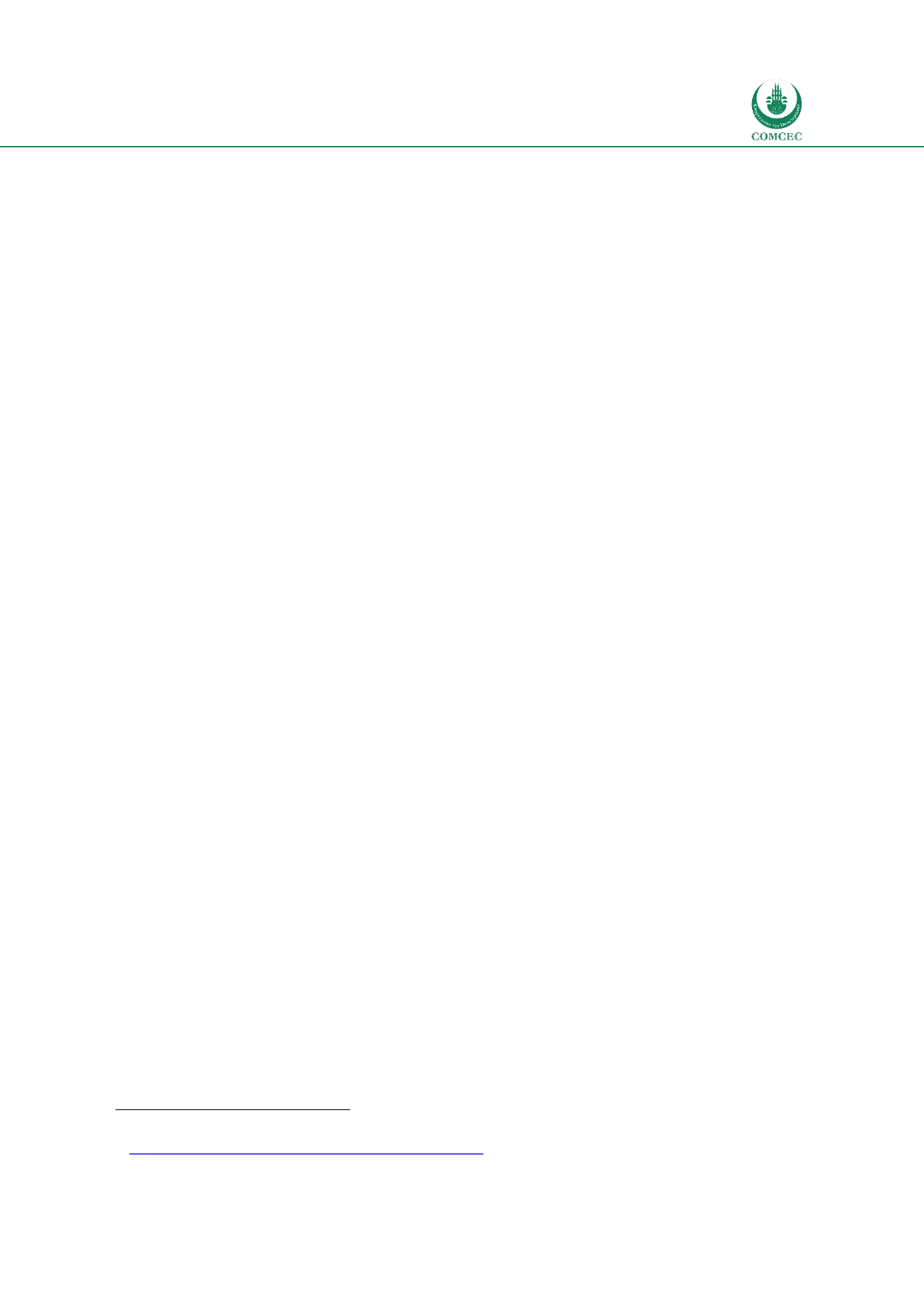

National and Global Islamic Financial Architecture:
Prolems and Possible Solutions for the OIC Member Countries
29
provide an alternative dispute resolution and reconciliation platform to settle cases applying
Islamic law for disputes arising in Islamic financial industry.
Regulatory Standard Setting Bodies
The Islamic Financial Services Board (IFSB) was established in 2002 in Kuala Lumpur,
Malaysia as a regulatory standard setting body for Islamic banks, takaful and capital markets
by introducing new, or adapting existing, international standards consistent with
Shariah
principles. IFSB promotes the development of a prudent and transparent Islamic financial
services industry to ensure the soundness and stability of the industry. As of December 2015,
IFSB has published 24 standards that include 17 Standards and Guiding Principles, 6 Guidance
Notes and one Technical Note.
The International Islamic Financial Markets (IIFM) was established in 2002 in Bahrain as a
global standard setting body focusing on ‘standardization of Islamic financial contracts and
products templates relating to the capital and money market, corporate finance and trade
finance’.
8
To date, IIFM has published seven standards of different products.
Shariah Related
One of the key Islamic jurisprudential institutions is the Islamic Fiqh Academy (IsFA)
established in 1981 in Jeddah, Saudi Arabia under the auspices of the OIC. Though IsFA issues
Islamic legal rulings on different issues, it also covers Shariah rulings in economic and financial
matters that are relevant for the Islamic financial sector.
Though Accounting and Auditing Organization for Islamic Financial Institutions (AAOIFI) were
first established to develop accounting, and auditing for Islamic financial institutions, it also
develops and publishes Shariah standards for Islamic financial contracts. To date, AAOIFI has
published 54 Shariah standards and four Shariah governance standards.
8
http://www.iifm.net/about_iifm/corporate-profile















